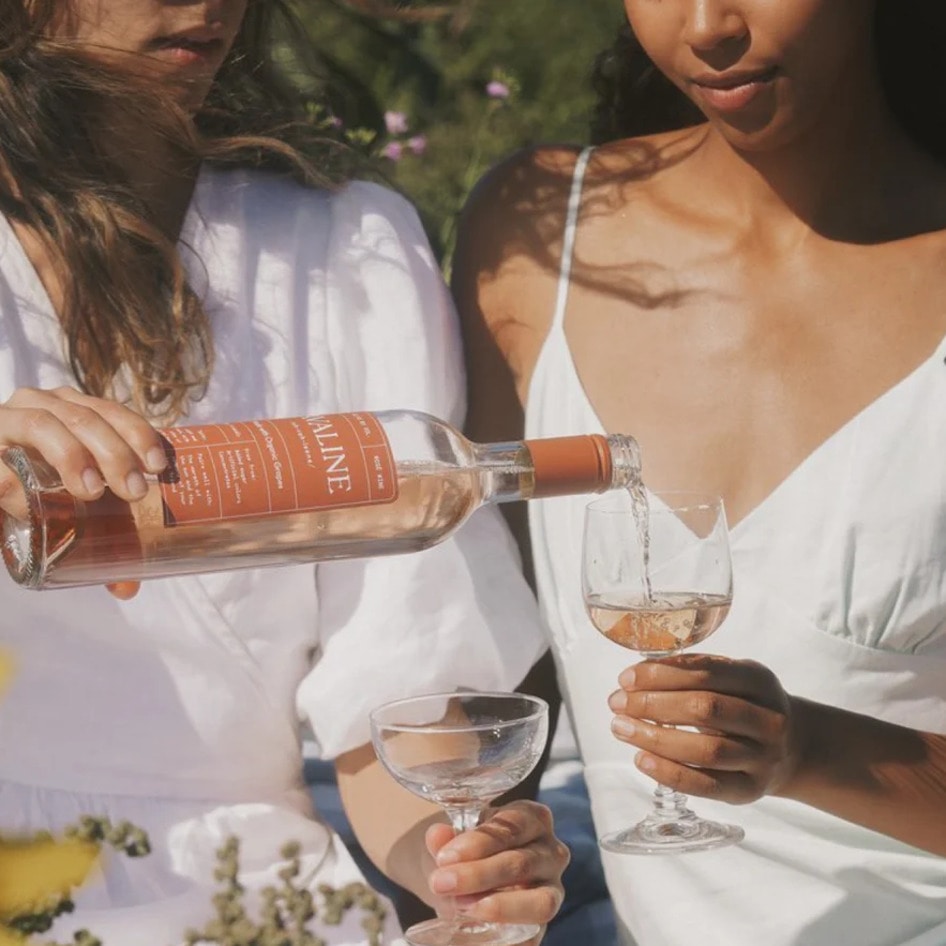Dealcoholized wine, also known as non-alcoholic wine, is part of a booming non-alcoholic beverage industry driven by changing consumer habits. Health consciousness and the “sober curious” movement are influencing people to reduce their alcohol intake or eliminate it altogether.
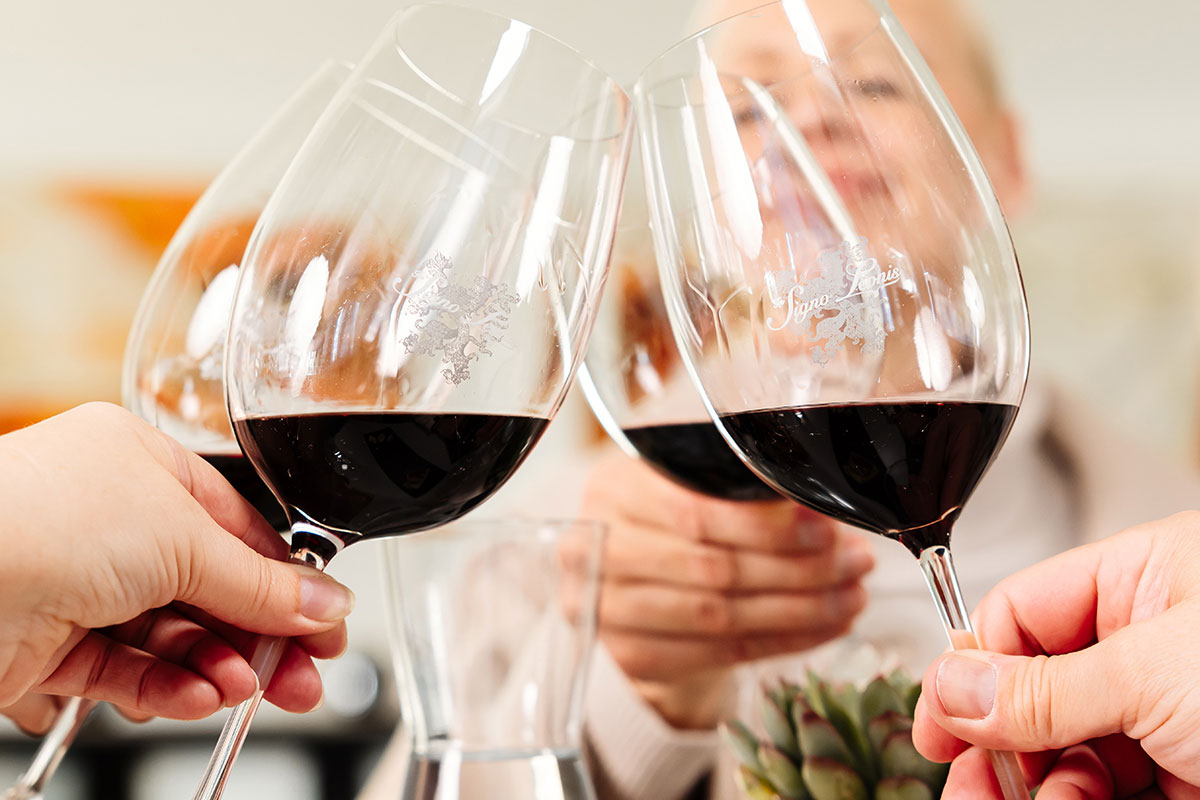 Monika Jungwirth
Monika Jungwirth
In the United States alone, the non-alcoholic beverage market was valued at approximately $280 billion in 2023 and is only expected to grow. A fast-growing sector of this industry is non-alcoholic wine, which is currently valued at $2.1 billion and is expected to more than double to $4.9 billion by 2032.
While early iterations of dealcoholized wine tasted more like grape juice, the growing interest in this industry has driven some traditional winemakers to invest in creating more complex dealcoholized wines that deliver all of the nuances of their boozy counterparts.
Dealcoholized wine made better
Dealcoholized wine appeals to those who seek the taste and experience of traditional wine without the effects of alcohol. However, producing high-quality NA wine poses significant challenges.
Traditional methods of removing alcohol involve either vacuum distillation, reverse osmosis or spinning-cone processes. Sometimes, dealcholized wine is made by bypassing fermentation. Since this process—where sugar is converted to alcohol—is essential to giving wine its revered notes, beverages made without it, which resemble grape juice in flavor, cannot legally be labeled as wine.
But how do you make truly excellent wine sans alcohol? We turned to the expert winemakers at Heribert Bayer in Austria—who just exanded their first batch of dealcoholized wines to the US—to find out.
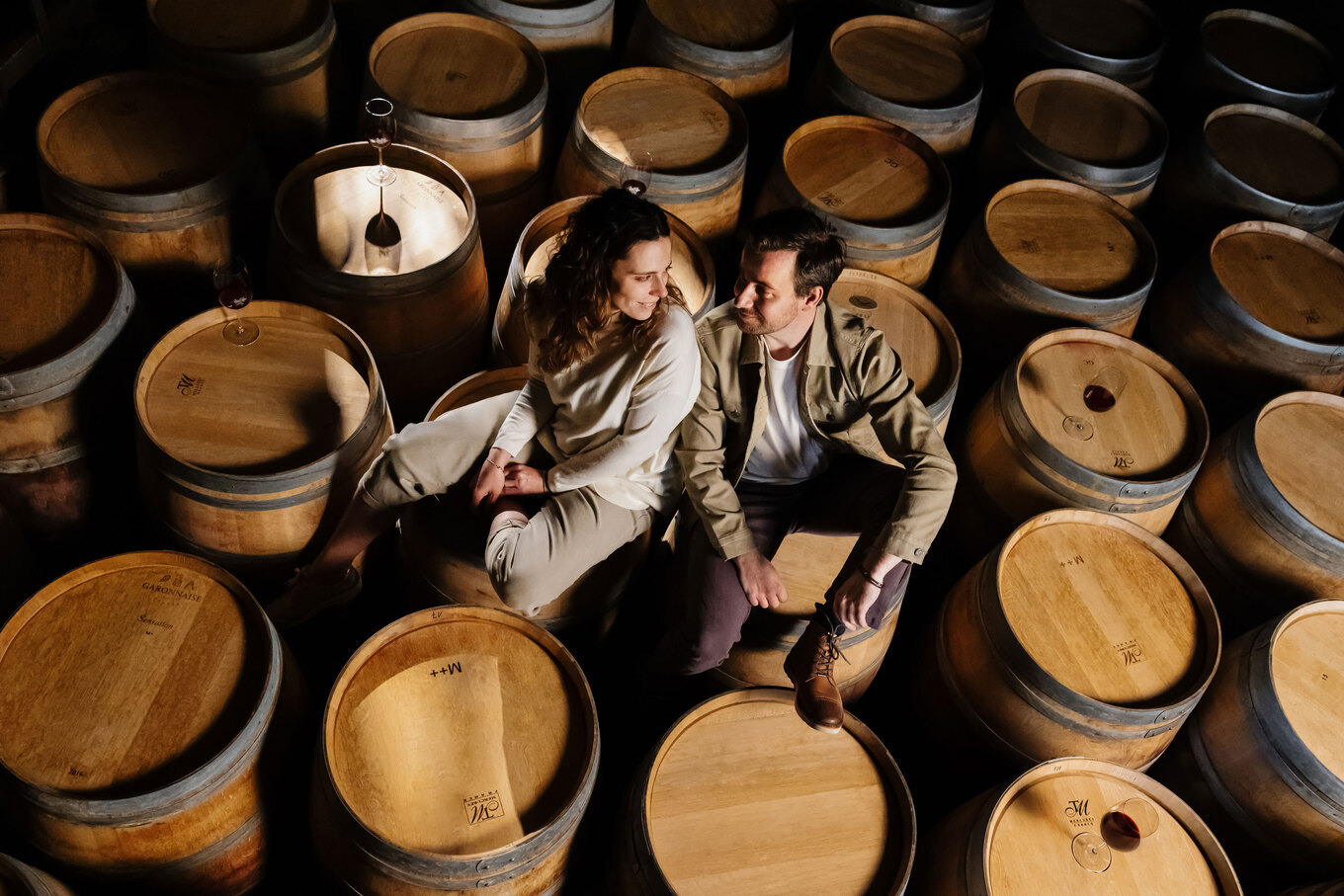 Monika Jungwirth
Monika Jungwirth
Motivated by curiosity, necessity, and a love of wine, second-generation winemakers Patrick Bayer and Katja Bernegger wanted to see if a super-high quality wine could be turned into a just-as-delicious, dealcoholized version.
“Katja, my fiancé and business partner, joined me at the winery in 2018, and it was always a dream of ours to make the world of wine accessible to everyone,” Bayer tells VegNews. “Three years later, Katja was pregnant and craving a rich and flavorful NA wine.”
To research the competition, the couple did a masked tasting of 20 different NA red wines from around the world, and were disappointed by each.
“None of them met our expectations,” Bayer says. “So, we wondered, ‘Can it be done differently?’ That was the moment our hearts started beating for NA wines.”
From this, Zeronimo Leonis Blend 2021—the world’s first 98-point dealcoholized wine—was born. This non-alcoholic version of their most popular red wine is made from a native varietal blend of Blaufränkisch, Zweigelt, and Cabernet Sauvignon grapes sourced from vines that are more than 70 years old. This wine is aged for two years in new French oak barrels to develop a depth of flavor.
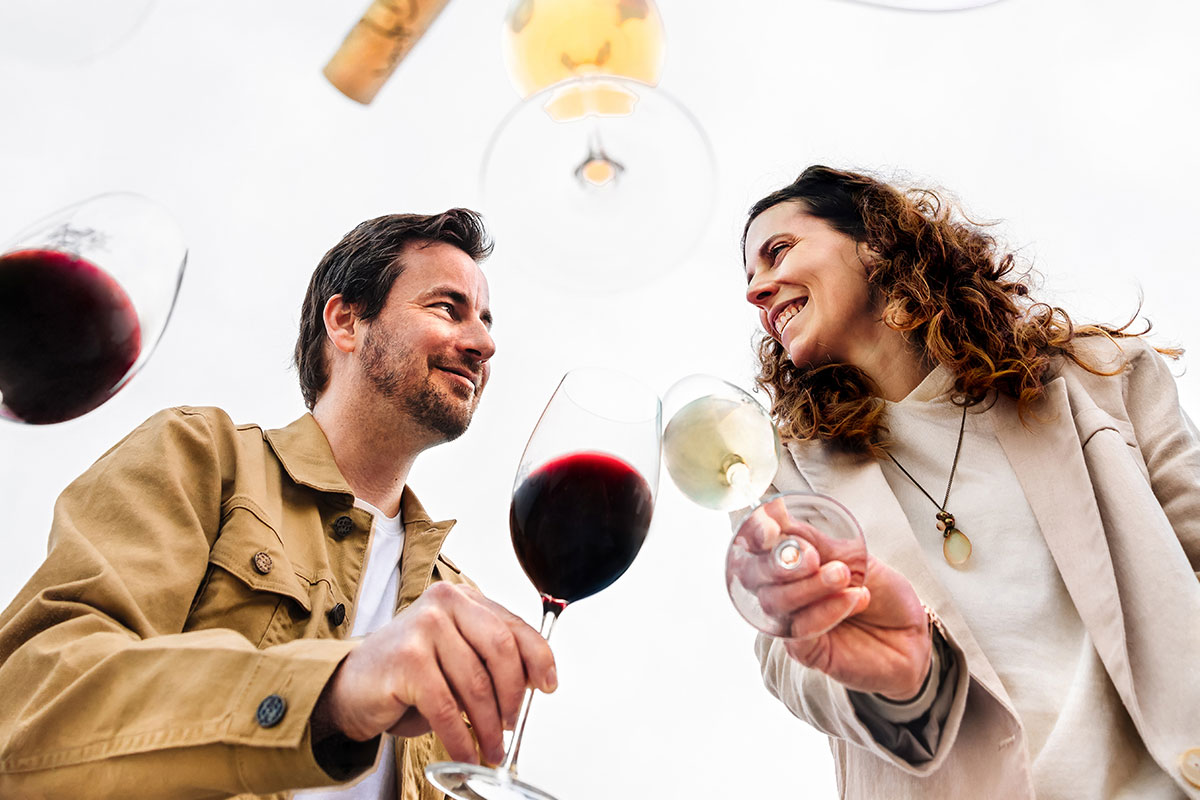 Monika Jungwirth
Monika Jungwirth
“We see non-alcoholic wines like Zeronimo not as an alternative, but as an expansion of the wine range so that wine can be accessible to everyone,” Bayer says.
The science behind dealcoholization
So how do you make non-alcoholic wines that don’t taste like grape juice? It takes a lot of skill and science. But first and foremost, Bayer explains, you need a high-quality base wine.
“To maintain qualities in dealcoholized wines and to preserve the authentic noble aromas of high-quality wines, you must begin with a wine that is rich and complex in flavor and also full-bodied,” he says.
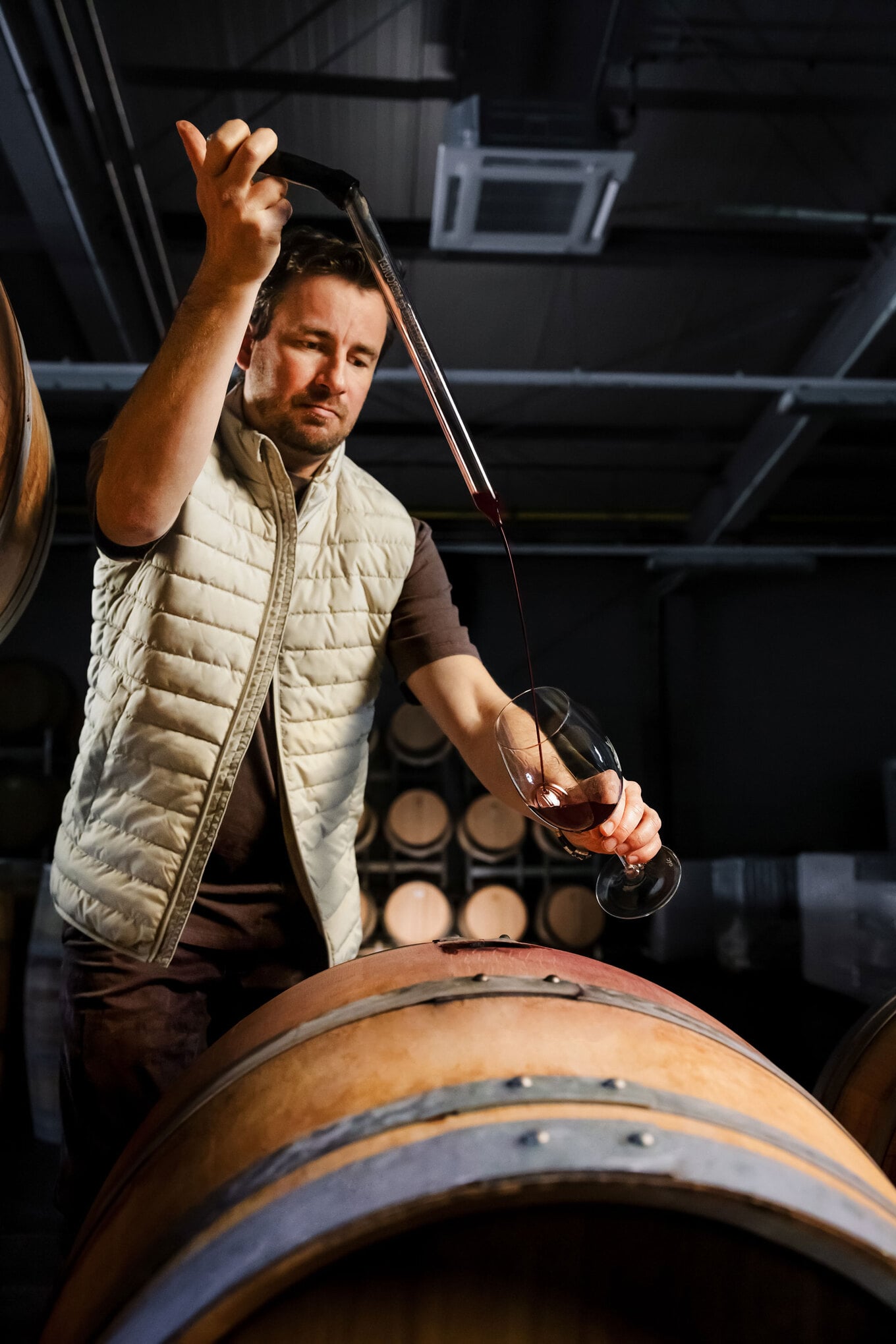 Monika Jungwirth
Monika Jungwirth
Zeronimo employs vacuum distillation and a patented aroma recovery method to achieve this. In vacuum distillation, the wine is placed in a vacuum environment, allowing the alcohol to “boil off” at a low temperature of 80 degrees Fahrenheit. The aroma recovery method then extracts flavors and aromas from the removed alcohol portion and reintegrates them into the dealcoholized wine.
The innovative and patented method used for Zeronimo wines, Bayer explains, takes three to four days and involves a very complex process. In order to maintain the maximum wine characteristics, the process does not involve the addition of sugar or other additives.
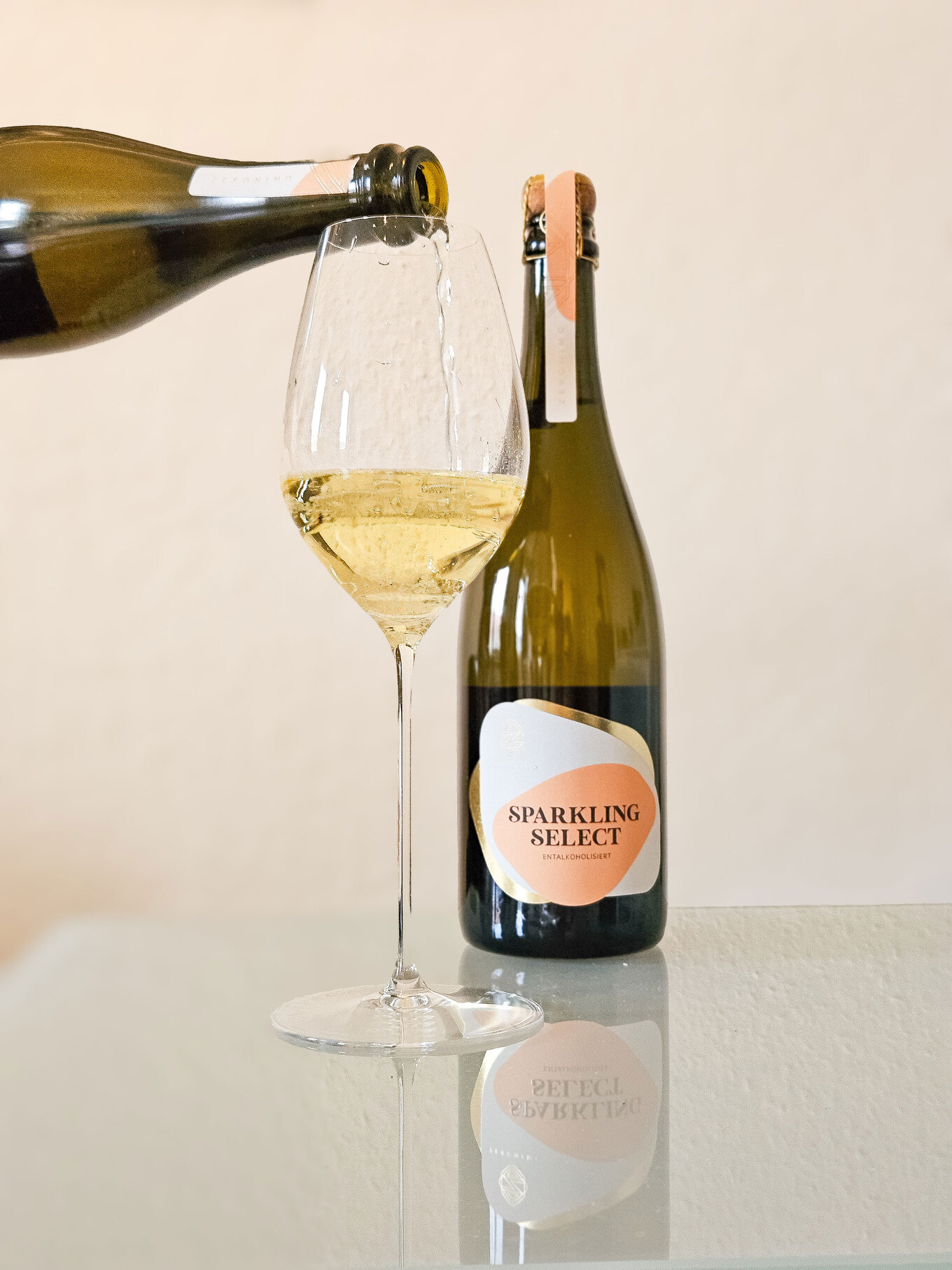 Heribert Bayer
Heribert Bayer
In addition to its Leonis Blend, Heribert Bayer is also launching a Sparkling Select non-alcoholic wine made with the same care.
Pairing non-alcoholic wines with food
Bayer is optimistic about the future of dealcoholized wine, particularly with advancements in aroma recovery technology. “The intensity in aromas and the richness of wine flavors that can be preserved with such methods are unbelievable,” he says.
Keeping the wine’s flavors intact also enhances the food pairing experience, bringing nuance to the table the way traditional wine does. While not all wine is vegan, Zeronimo wines pride themselves on not using any animal-derived ingredients or agents in their winemaking process. As such, these wines also pair well with plant-based food.
“We love to cook and eat—Zeronimo wines are great food pairing partners,” he says. “They are dry, multilayered, rich in flavors and have an agile acidity that makes them perfect food pairing partners that frame dishes gorgeously.”
Bayer suggests pairing the Zeronimo Sparkling Select with cold cucumber salad, glass noodle salad with tofu, crispy vegan spring rolls, and warm sweet potato salad with vegan feta.
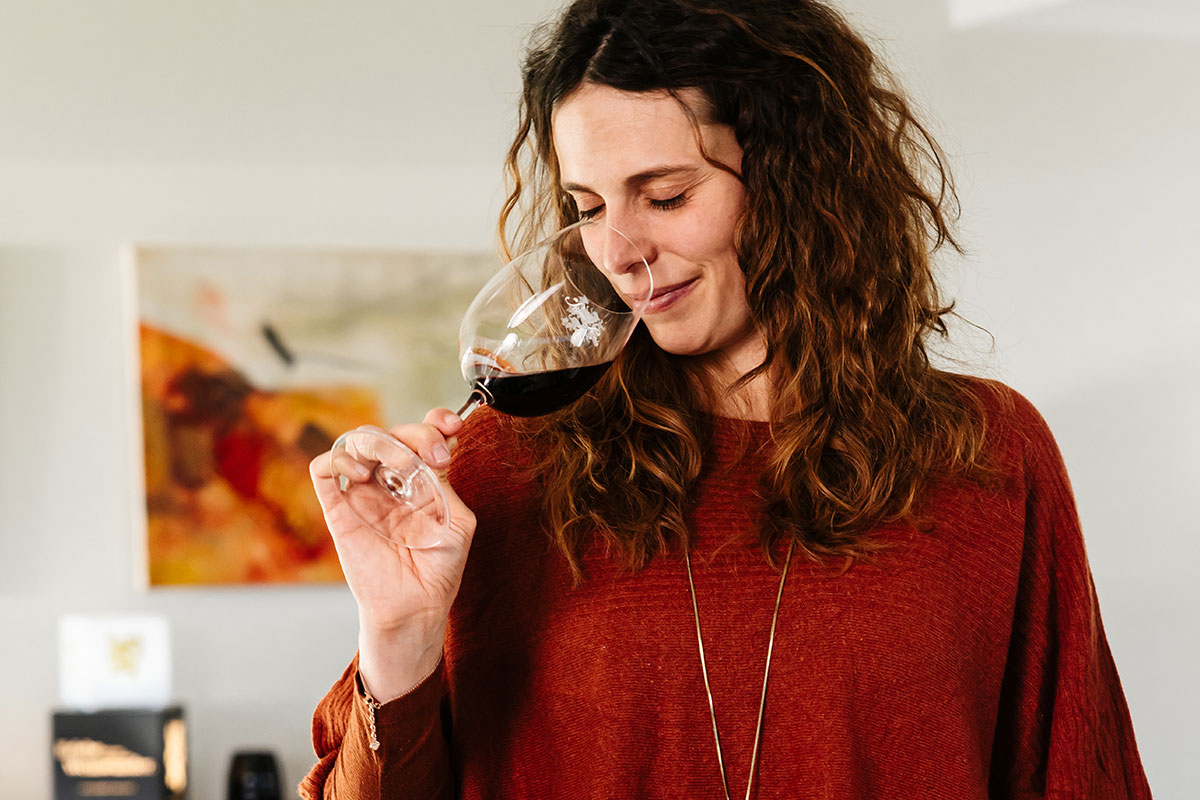 Monika Jungwirth
Monika Jungwirth
Dealcoholized wines, especially reds, can differ in unique and exciting ways from their alcoholic counterparts. “The body of the wine after dealcoholization gets subtly light-footed and very elegant,” Bayer says. “The mouthfeel is more refreshing rather than warm, and also more middle-bodied rather than full.”
“The finish stays longer and leads you to the next sip—it is just a bit more cold and bitter than the typical warm flavors,” he says.
For the bolder Zeronimo Leonis Blend, Bayer suggests heartier pairings such as vegan pizza and pasta, pulled mushroom wraps, couscous salad with fried chickpeas, and miso eggplant with sesame rice.
“For us, dealcoholized wines are in their own wine category (like Orange Wine or Pet-Nat) that has its own wine flavor profile and is not comparable to conventional wines,” he says. “They are unique and can stand on their own.”
“This shows just how fascinating and versatile wine is, and how just one difference in crafting can lead to such different tasting profiles,” Bayer says.
The evolution of the non-alcoholic industry
Zeronimo wines are making their US debut thanks to Joshua James, the owner of Ocean Beach Brands and Ocean Beach Cafe, a bottle shop and non-alcoholic bar in San Francisco that the career bartender opened when he took a break from alcohol to explore what the non-alcoholic beverage world had to offer.
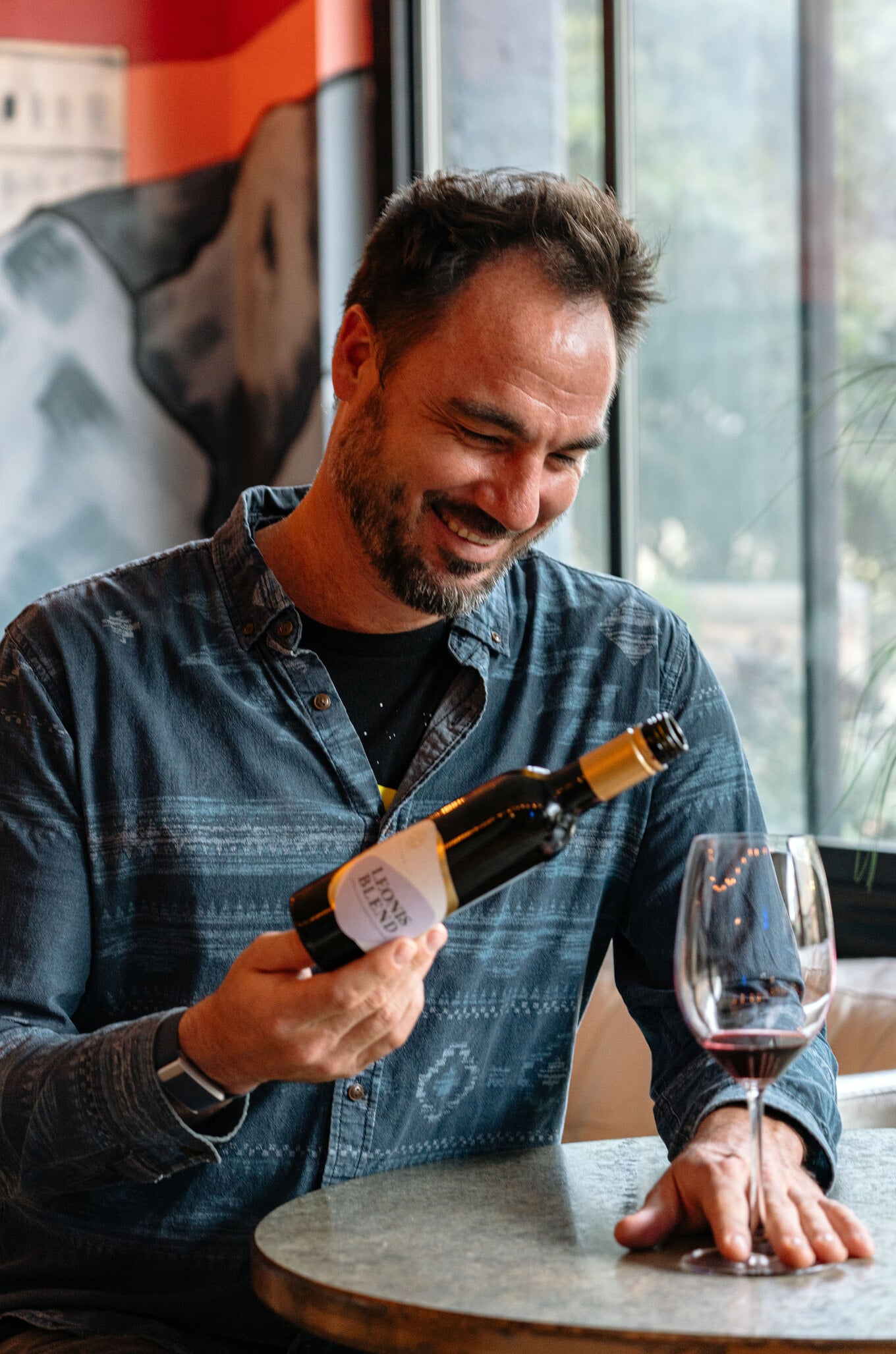 Zeronimo
Zeronimo
With decades in the food and beverage industry, James has seen the evolution of non-alcoholic wines first hand and sees a major opportunity for winemakers to take dealcoholized wine more seriously.
“I started seeing a trend during Dry January in 2021, with brands trying to mimic alcohol analogues,” James tells VegNews. “This approach often falls short. Instead, we should expand what we can experience and push the category forward with new and innovative options.”
While James hesitated to add NA wine to his offerings initially, as the quality improved by 2023, he began to offer a wider selection. It is now non-alcoholic wines that attract the most clientele at Ocean Beach Cafe. “Yet, I could go to 100 restaurants in San Francisco right now and only find a handful of NA wine options, and even less of a chance that it’s a delicious one,” James says. “There is so much potential to fill this gap.”
So, what sets a good non-alcoholic wine apart? James says it’s as much passion as it is process.
“Great machines and great wine, to start, make great NA wine,” he says. “Most of the wines in my shop come from Europe—there are just better machines over there.”
With Zeronimo, James sees a breakthrough in the delivery of complex notes akin to traditional wines. “Zeronimo is the one that we’ve been waiting for,” James says. “Their red blend has forest floor, mushroom, and cherry notes that are spectacular.”
“Their sparkling is unbelievable—it easily knocks every other NA wine out of the pool,” he says.
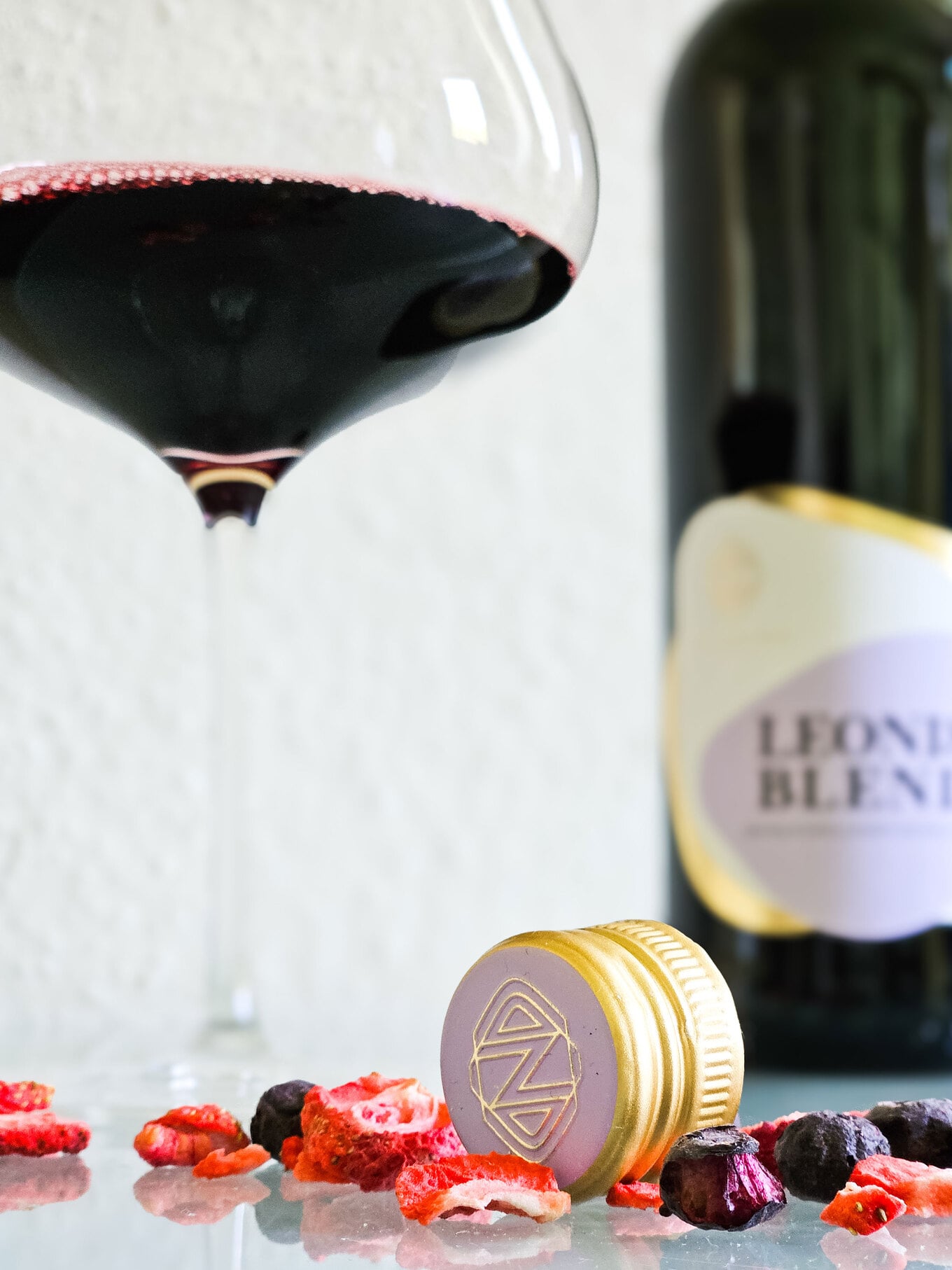 Heribert Bayer
Heribert Bayer
In addition to Zeronimo wines, James has a few other favorites he has encountered over the years, including the Prime Pave, Studio Null, and Sovi Reserve Red—a 2018 Tempranillo blended with a 2021 Cabernet which offers a rich flavor profile.
“The NA industry has so much to offer, it’s just about getting people to try it out,” James says. “For people who are venturing into this world, they aren’t just looking for a sugary mocktail—they are looking for something better than what they were drinking before.”
Outside of James’ Ocean Beach Brands, Zeronimo wines will be available this June in limited quantities through non-alcoholic drink shop Spirited Away in New York City before a wider nationwide release through the company website in August.
For more, check out:
JUMP TO ... Latest News | Recipes | Guides | Health | Shop
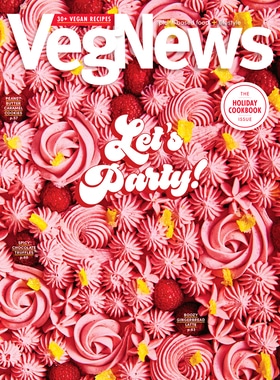
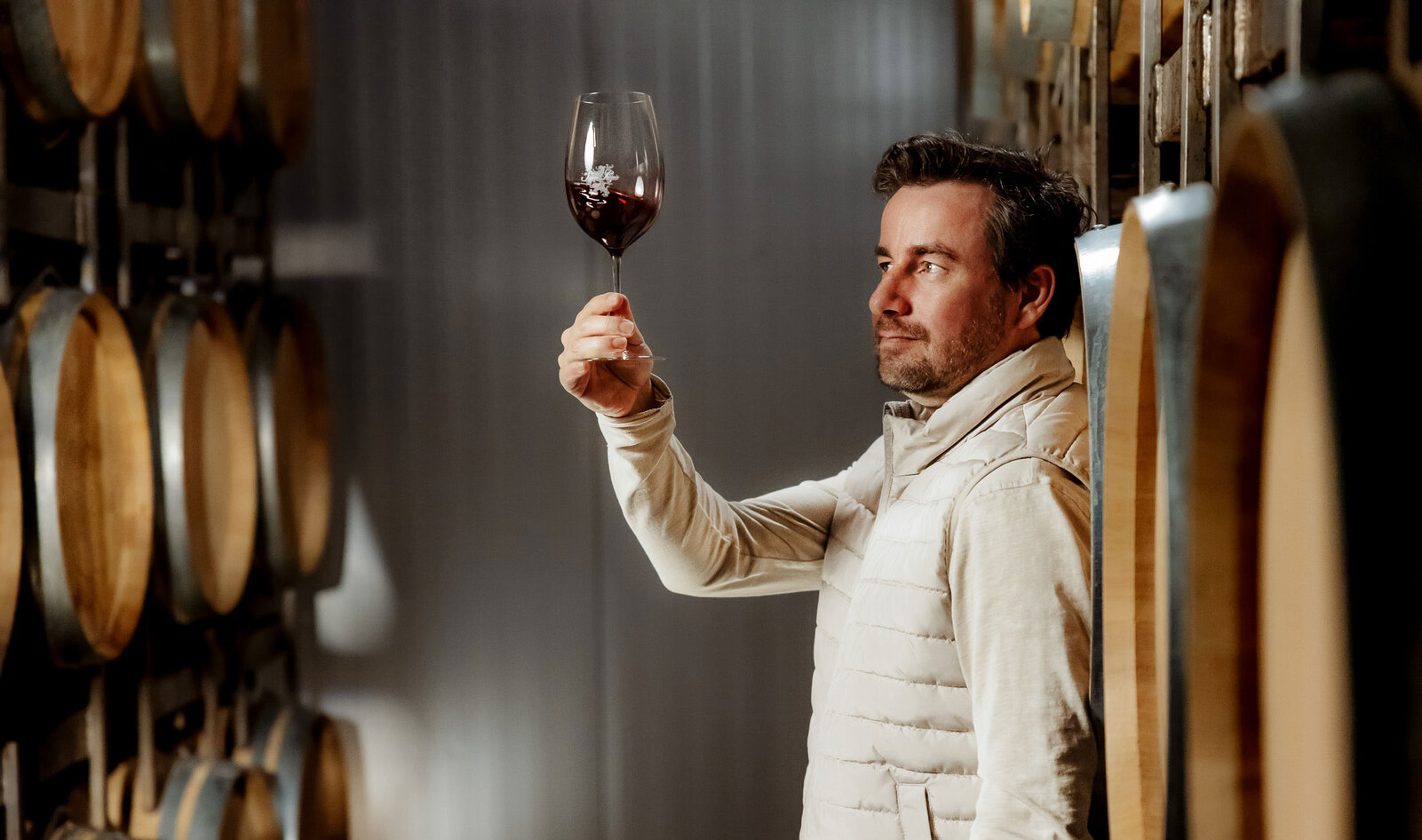

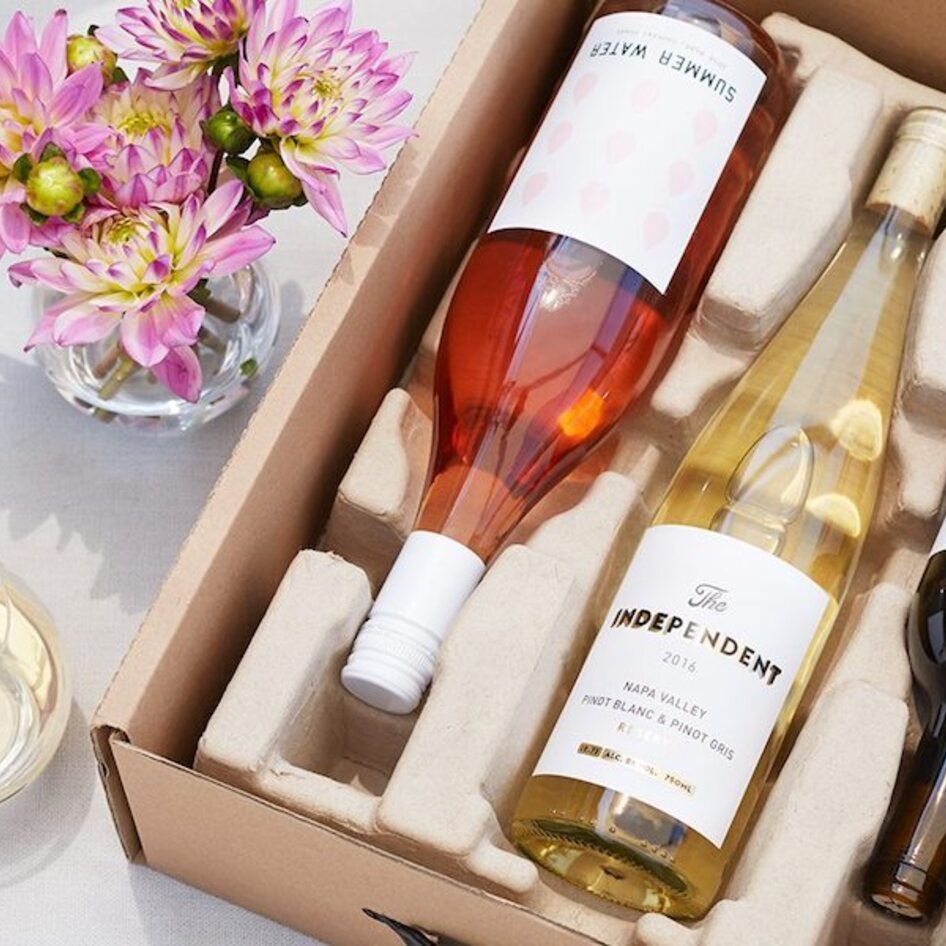
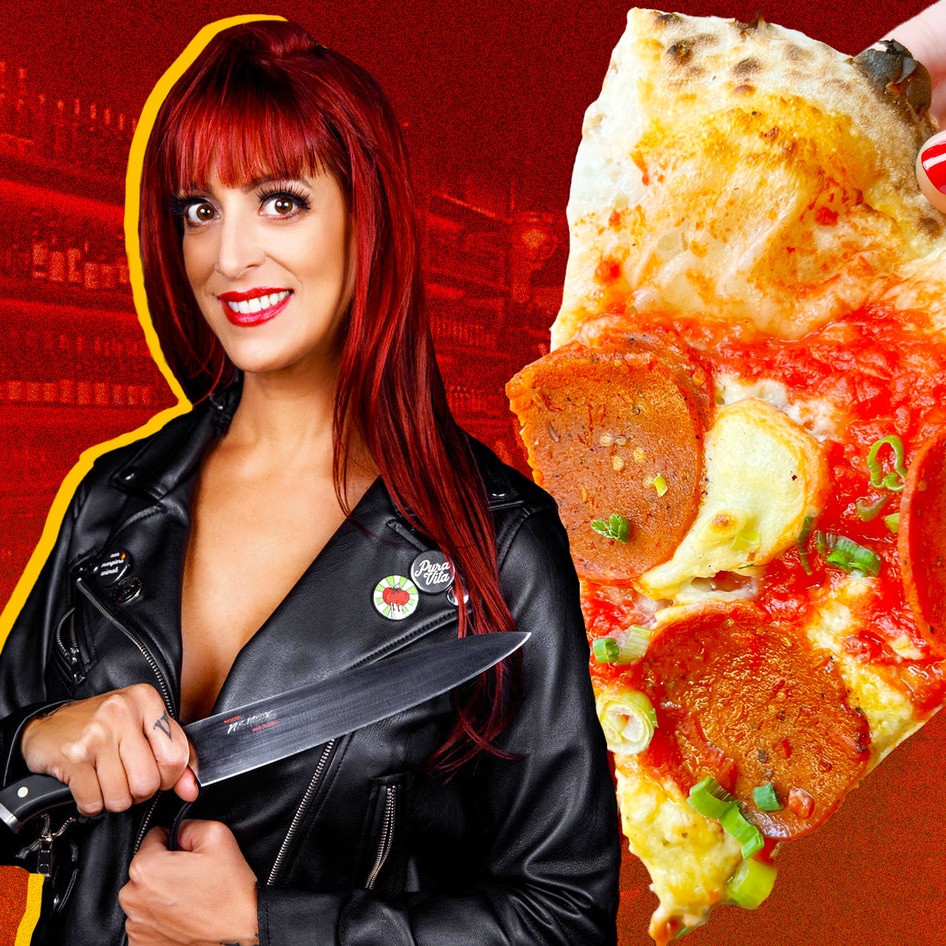
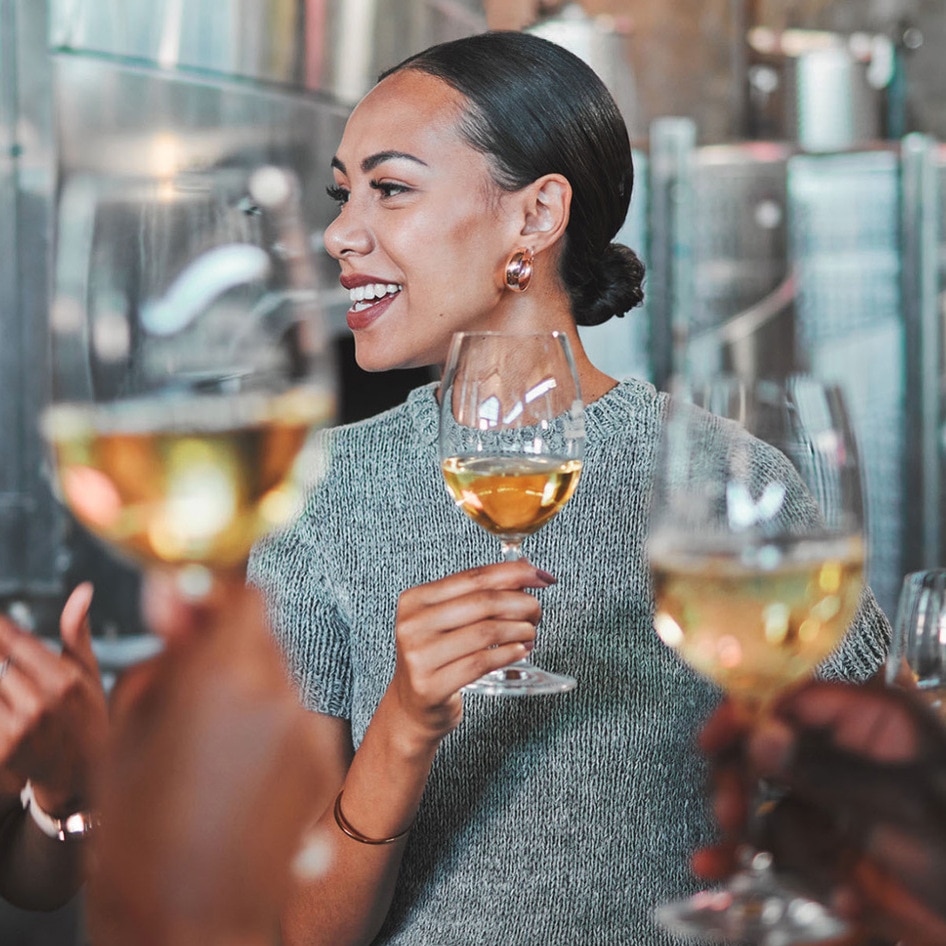
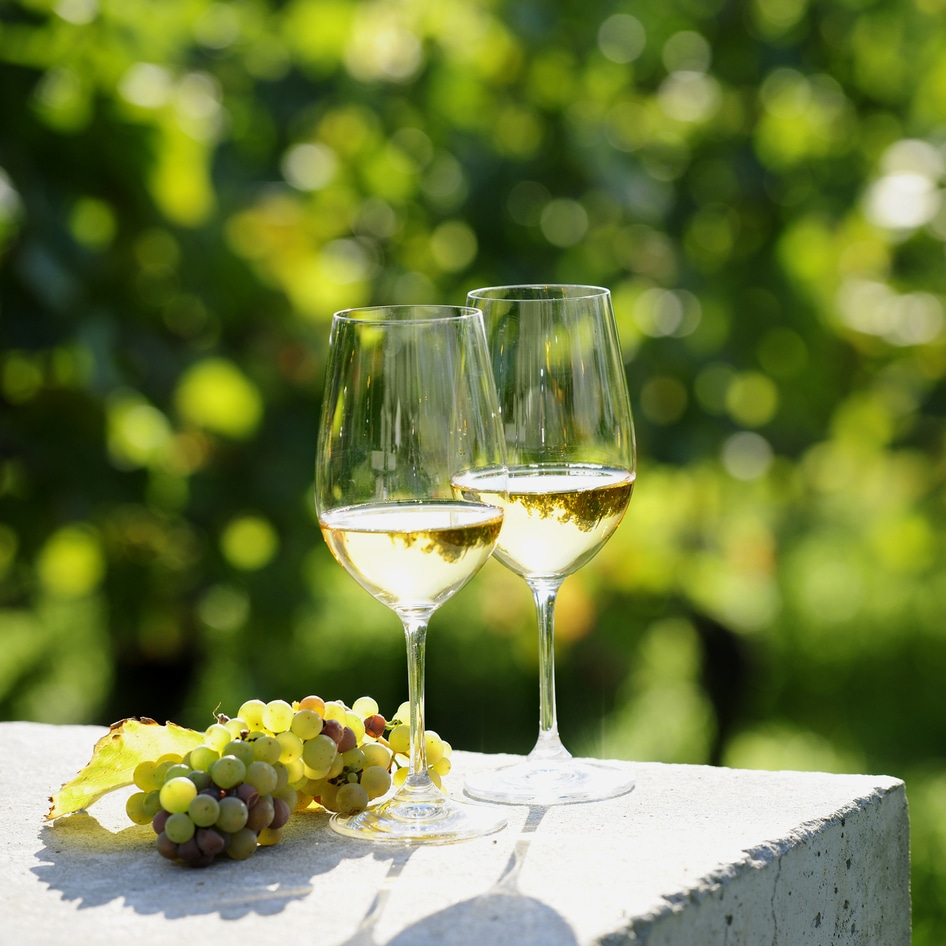
2a9c.jpg?sha=3ea4778cc846020c)
